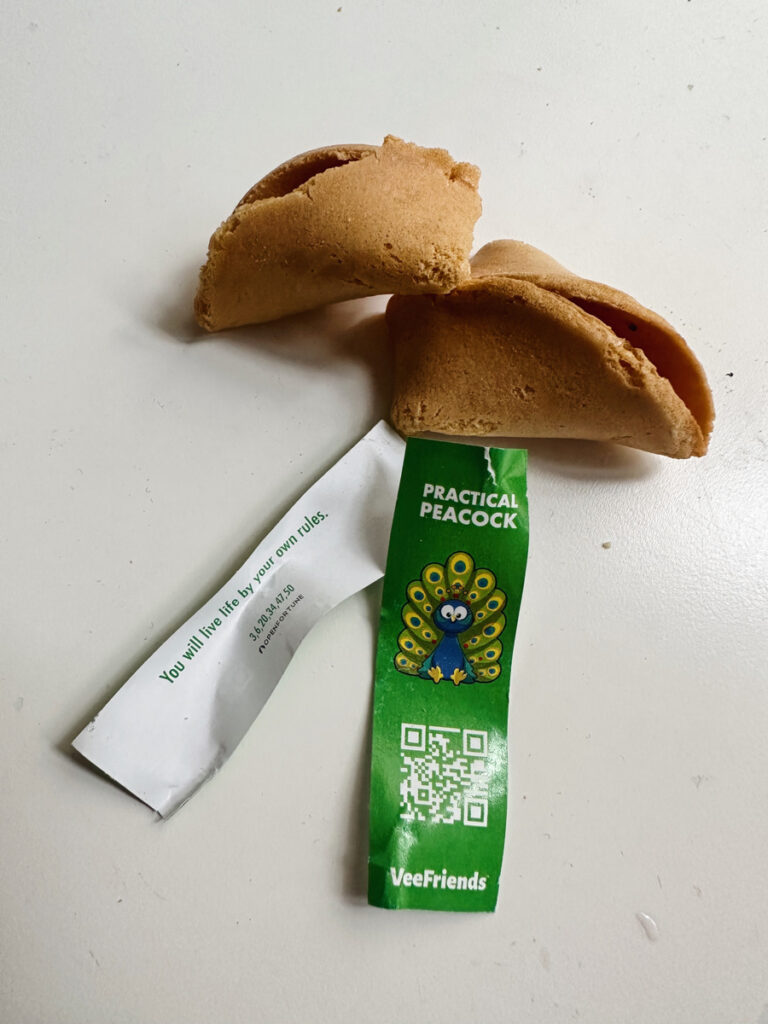OpenFortune conducted a survey with Nielsen on fortune cookie habits. Their research found that 7% of people share their fortunes on social media, and 20% keep their slip after a meal.
“We realized we had something extraordinarily special here–not just a general media platform but an emotional tie-in,” Porat said. “We knew we had to guard the integrity of the fortune cookie as we were putting the brand on the back.”
Enter the brands
OpenFortune’s first major brand partnership was in 2018 with Capital One, which used fortune cookies to promote its new rewards card offering cash back on dining purchases. The company distributed 10 million ads to Chinese restaurants across the U.S., and the campaign went viral.
Since then, OpenFortune’s other clients have included Rocket Money, ZipRecruiter, Chime, Duolingo and Zelle. It estimates it reaches 135 million U.S. consumers every month with its fortune cookie advertising, and it has also expanded internationally into 24 countries across Europe, South America, Mexico, Canada, Asia and South Africa.
Over the next five years we want to take significant budget away from sports sponsorships like the Super Bowl.
Matt Williams, OpenFortune co-founder and chief cookie officer
A more recent campaign came with VeeFriends, Vaynerchuk’s NFT project, in which diners could scan a QR code on the back of fortune cookie slips and learn more about the collection. The campaign garnered more than 143,000 QR scans and over 122.5 million social impressions. The reach and social engagement also convinced Vaynerchuk to invest in OpenFortune.

Already cemented in the American Asian restaurant scene, OpenFortune hopes its newfound fortune from Vaynerchuk will help it scale even further.
Taking on the Super Bowl
The founders want advertisers to see the opportunity with OpenFortune as “you’re sponsoring the back of the fortune cookie,” said Williams. “Over the next five years, we want to take significant budget away from sports sponsorships like the Super Bowl.”
The company currently works with about two dozen brands, half of which have exclusive rights. For example, it signed a three-year deal with blockchain platform Algorand, agreeing not to work with any other blockchain brands.
With other forms of advertising, everyone knows it’s mass marketing. A fortune cookie feels like it was meant for you.
Shawn Porat, OpenFortune co-founder and chief fortune officer
OpenFortune takes bespoke creative approaches with brands when developing campaigns. Some advertisers have chosen to tie their message to the tone or emotion of the fortune– such as Expedia, which ran its campaign on the back of fortunes, referencing positive life experiences and spending quality time. Other clients, like GrubHub, wanted their placement on fortunes to be completely random.

